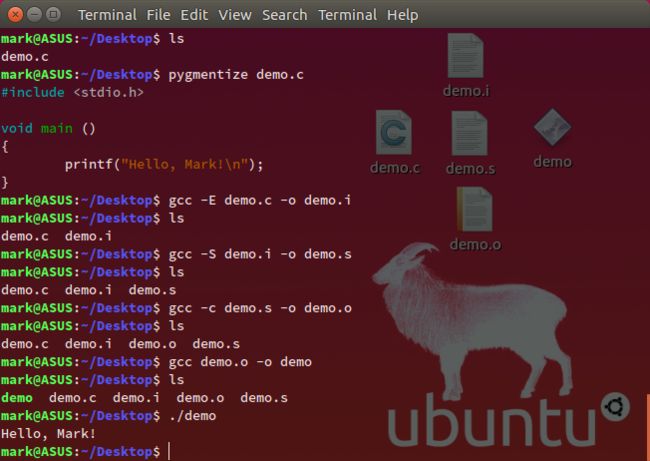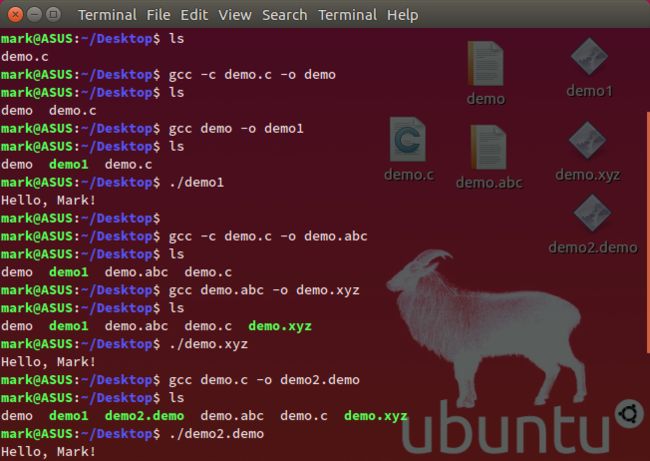- python 读excel每行替换_Python脚本操作Excel实现批量替换功能
weixin_39646695
python读excel每行替换
Python脚本操作Excel实现批量替换功能大家好,给大家分享下如何使用Python脚本操作Excel实现批量替换。使用的工具Openpyxl,一个处理excel的python库,处理excel,其实针对的就是WorkBook,Sheet,Cell这三个最根本的元素~明确需求原始excel如下我们的目标是把下面excel工作表的sheet1表页A列的内容“替换我吧”批量替换为B列的“我用来替换的
- 三菱PLC全套学习资料及应用手册
good2know
本文还有配套的精品资源,点击获取简介:三菱PLC作为工业自动化领域的核心设备,其系列产品的学习和应用需要全面深入的知识。本次资料包为学习者提供从基础到进阶的全方位学习资源,包括各种型号PLC的操作手册、编程指南、软件操作教程以及实际案例分析,旨在帮助用户系统掌握PLC的编程语言、指令系统及在各类工业应用中的实施。1.三菱PLC基础知识入门1.1PLC的基本概念可编程逻辑控制器(PLC)是工业自动化
- 移动端城市区县二级联动选择功能实现包
good2know
本文还有配套的精品资源,点击获取简介:本项目是一套为移动端设计的jQuery实现方案,用于简化用户在选择城市和区县时的流程。它包括所有必需文件:HTML、JavaScript、CSS及图片资源。通过动态更新下拉菜单选项,实现城市到区县的联动效果,支持数据异步加载。开发者可以轻松集成此功能到移动网站或应用,并可基于需求进行扩展和优化。1.jQuery移动端解决方案概述jQuery技术简介jQuery
- (二)SAP Group Reporting (GR) 核心子模块功能及数据流向架构解析
数据如何从子公司流转到合并报表的全过程,即数据采集→合并引擎→报表输出,特别是HANA内存计算如何优化传统ETL瓶颈。SAPGroupReporting(GR)核心模块功能及数据流向的架构解析,涵盖核心组件、数据处理流程和关键集成点,适用于S/4HANA1809+版本:一、核心功能模块概览模块功能关键事务码/FioriApp数据采集(DataCollection)整合子公司财务数据(SAP/非SA
- IK分词
初心myp
实现简单的分词功能,智能化分词添加依赖配置:4.10.4org.apache.lucenelucene-core${lucene.version}org.apache.lucenelucene-analyzers-common${lucene.version}org.apache.lucenelucene-queryparser${lucene.version}org.apache.lucenel
- SpringMVC执行流程(原理),通俗易懂
国服冰
SpringMVCspringmvc
SpringMVC执行流程(原理),通俗易懂一、图解SpringMVC流程二、进一步理解Springmvc的执行流程1、导入依赖2、建立展示的视图3、web.xml4、spring配置文件springmvc-servlet5、Controller6、tomcat配置7、访问的url8、视图页面一、图解SpringMVC流程图为SpringMVC的一个较完整的流程图,实线表示SpringMVC框架提
- centos7出现 bash: ip: command not found
微信圈
centos
centos7出现bash:ip:commandnotfoundyum-yinstallinitscripts
- C++ 计数排序、归并排序、快速排序
每天搬一点点砖
c++数据结构算法
计数排序:是一种基于哈希的排序算法。他的基本思想是通过统计每个元素的出现次数,然后根据统计结果将元素依次放入排序后的序列中。这种排序算法适用于范围较小的情况,例如整数范围在0到k之间计数排序步骤:1初始化一个长度为最大元素值加1的计数数组,所有元素初始化为02遍历原始数组,将每个元素值作为索引,在计数数组中对应位置加13将数组清空4遍历计数器数组,按照数组中的元素个数放回到元数组中计数排序的优点和
- 48. 旋转图像 - 力扣(LeetCode)
Fiee-77
#数组leetcode算法python数据结构数组
题目:给定一个n×n的二维矩阵matrix表示一个图像。请你将图像顺时针旋转90度。你必须在原地旋转图像,这意味着你需要直接修改输入的二维矩阵。请不要使用另一个矩阵来旋转图像。示例1:输入:matrix=[[1,2,3],[4,5,6],[7,8,9]]输出:[[7,4,1],[8,5,2],[9,6,3]]示例2:输入:matrix=[[5,1,9,11],[2,4,8,10],[13,3,6,
- 英伟达靠什么支撑起了4万亿?AI泡沫还能撑多久?
英伟达市值突破4万亿美元,既是AI算力需求爆发的直接体现,也暗含市场对未来的狂热预期。其支撑逻辑与潜在风险并存,而AI泡沫的可持续性则取决于技术、商业与地缘政治的复杂博弈。⚙️一、英伟达4万亿市值的核心支撑因素技术垄断与生态壁垒硬件优势:英伟达GPU在AI训练市场占有率超87%,H100芯片的FP16算力达1979TFLOPS,领先竞品3-5倍。CUDA生态:400万开发者构建的软件护城河,成为A
- 深入解析JVM工作原理:从字节码到机器指令的全过程
一、JVM概述Java虚拟机(JVM)是Java平台的核心组件,它实现了Java"一次编写,到处运行"的理念。JVM是一个抽象的计算机器,它有自己的指令集和运行时内存管理机制。JVM的主要职责:加载:读取.class文件并验证其正确性存储:管理内存分配和垃圾回收执行:解释或编译字节码为机器指令安全:提供沙箱环境限制恶意代码二、JVM架构详解JVM由三个主要子系统组成:1.类加载子系统类加载过程分为
- Spring进阶 - SpringMVC实现原理之DispatcherServlet处理请求的过程
倾听铃的声
后端springjavamvc开发语言分布式
前文我们有了IOC的源码基础以及SpringMVC的基础,我们便可以进一步深入理解SpringMVC主要实现原理,包含DispatcherServlet的初始化过程和DispatcherServlet处理请求的过程的源码解析。本文是第二篇:DispatcherServlet处理请求的过程的源码解析。@pdaiSpring进阶-SpringMVC实现原理之DispatcherServlet处理请求的
- MotionLCM 部署优化 踩坑解决bug
AI算法网奇
aigc与数字人深度学习宝典文生motion
目录依赖项windowstorchok:渲染黑白图问题解决:humanml3d:sentence-t5-large下载数据:报错:Nomodulenamed'sentence_transformers'继续报错:fromtransformers.integrationsimportCodeCarbonCallback解决方法:推理相关转mesh:module‘matplotlib.cm‘hasno
- 【C++算法】76.优先级队列_前 K 个高频单词
流星白龙
优选算法C++c++算法开发语言
文章目录题目链接:题目描述:解法C++算法代码:题目链接:692.前K个高频单词题目描述:解法利用堆来解决TopK问题预处理一下原始的字符串数组,用一个哈希表统计一下每一个单词出现的频次。创建一个大小为k的堆频次:小根堆字典序(频次相同的时候):大根堆循环让元素依次进堆判断提取结果C++算法代码:classSolution{//定义类型别名,PSI表示对typedefpairPSI;//自定义比较
- JVM 内存模型深度解析:原子性、可见性与有序性的实现
练习时长两年半的程序员小胡
JVM深度剖析:从面试考点到生产实践jvmjava内存模型
在了解了JVM的基础架构和类加载机制后,我们需要进一步探索Java程序在多线程环境下的内存交互规则。JVM内存模型(JavaMemoryModel,JMM)定义了线程和主内存之间的抽象关系,它通过规范共享变量的访问方式,解决了多线程并发时的数据一致性问题。本文将从内存模型的核心目标出发,详解原子性、可见性、有序性的实现机制,以及volatile、synchronized等关键字在其中的作用。一、J
- 互信息:理论框架、跨学科应用与前沿进展
大千AI助手
人工智能Python#OTHER人工智能深度学习算法互信息香农通信随机变量
1.起源与核心定义互信息(MutualInformation,MI)由克劳德·香农(ClaudeShannon)在1948年开创性论文《AMathematicalTheoryofCommunication》中首次提出,该论文奠定了现代信息论的基础。互信息用于量化两个随机变量之间的统计依赖关系,定义为:若已知一个随机变量的取值,能为另一个随机变量提供的信息量。数学上,对于离散随机变量XXX和YYY,
- SpringMVC的执行流程
1、什么是MVCMVC是一种设计模式。MVC的原理图如下所示M-Model模型(完成业务逻辑:有javaBean构成,service+dao+entity)V-View视图(做界面的展示jsp,html……)C-Controller控制器(接收请求—>调用模型—>根据结果派发页面2、SpringMVC是什么SpringMVC是一个MVC的开源框架,SpringMVC=Struts2+Spring,
- 企业级区块链平台Hyperchain核心原理剖析
boyedu
区块链区块链企业级区块链平台Hyperchain
Hyperchain作为国产自主可控的企业级联盟区块链平台,其核心原理围绕高性能共识、隐私保护、智能合约引擎及可扩展架构展开,通过多模块协同实现企业级区块链网络的高效部署与安全运行。以下从核心架构、关键技术、性能优化、安全机制、应用场景五个维度展开剖析:一、核心架构:分层解耦与模块化设计Hyperchain采用分层架构,将区块链功能解耦为独立模块,支持灵活组合与扩展:P2P网络层由验证节点(VP)
- 车载刷写架构 --- 整车刷写中为何增加了ECU 队列刷写策略?
汽车电子实验室
电子电器架构——刷写方案车载电子电气架构架构开发语言车载诊断进阶篇汽车中央控制单元HPC软件架构关于网关转发性能引起的思考
我是穿拖鞋的汉子,魔都中坚持长期主义的汽车电子工程师。老规矩,分享一段喜欢的文字,避免自己成为高知识低文化的工程师:周末洗了一个澡,换了一身衣服,出了门却不知道去哪儿,不知道去找谁,漫无目的走着,大概这就是成年人最深的孤独吧!旧人不知我近况,新人不知我过往,近况不该旧人知,过往不与新人讲。纵你阅人何其多,再无一人恰似我。时间不知不觉中,来到新的一年。2025开始新的忙碌。成年人的我也不知道去哪里渡
- 车载诊断架构 ---面向售后的DTC应该怎么样填写?
汽车电子实验室
车载电子电气架构漫谈UDS诊断协议系列EV(电动汽车)常规知识必备架构面向售后的DTC车载诊断架构OEM怎么掌握软件开发能力车载通信网络槪述androidZEVonUDS-J1979
我是穿拖鞋的汉子,魔都中坚持长期主义的汽车电子工程师。老规矩,分享一段喜欢的文字,避免自己成为高知识低文化的工程师:简单,单纯,喜欢独处,独来独往,不易合同频过着接地气的生活,除了生存温饱问题之外,没有什么过多的欲望,表面看起来很高冷,内心热情,如果你身边有这样灵性的人,一定要好好珍惜他们眼中有神有光,干净,给人感觉很舒服,有超强的感知能力有形的无形的感知力很强,能感知人的内心变化喜欢独处,好静,
- 2018-09-27 aop相关
蒋超_58dc
1.静态织入,需要使用aspectj专用的compilermaven工程可以采用:https://www.mojohaus.org/aspectj-maven-plugin/2.动态织入,配合spring,创建代理来执行3.
- 通义万相2.2:开启高清视频生成新纪元
Liudef06小白
特殊专栏AIGC人工智能人工智能通义万相2.2图生视频
通义万相2.2:开启高清视频生成新纪元2025年7月28日,中国AI领域迎来里程碑时刻——通义万相团队正式开源其革命性视频生成模型Wan2.2的核心权重,这标志着开源社区首次获得支持720P高清视频生成的先进模型架构。一、架构革新:混合专家系统1.1MoE视频扩散架构通义万相2.2首次将混合专家(MoE)架构引入视频扩散模型,通过双专家系统实现计算效率与模型容量的平衡:classMoEVideoD
- CentOS容器没有ip addr命令
BLZxiaopang
centostcp/iplinuxdocker
centos容器没有ip命令[root@Centos/]#ipadd-bash:ip:commandnotfound[root@Centos/]#yum-yinstallinitscripts
- 2025年SDK游戏盾终极解析:重新定义手游安全的“隐形护甲”
上海云盾商务经理杨杨
游戏安全
副标题:从客户端加密到AI反外挂,拆解全链路防护如何重塑游戏攻防天平引言:当传统高防在手游战场“失效”2025年全球手游市场规模突破$2000亿,黑客单次攻击成本却降至$30——某SLG游戏因协议层CC攻击单日流失37%玩家,某开放世界游戏遭低频DDoS瘫痪6小时损失千万。传统高防IP的致命短板暴露无遗:无法识别伪造客户端流量、难防协议篡改、误杀率超15%。而集成于游戏终端的SDK游戏盾,正以“源
- LVS+Keepalived实现高可用和负载均衡
2401_84412895
程序员lvs负载均衡运维
2、开启网卡子接口配置VIP[root@a~]#cd/etc/sysconfig/network-scripts/[root@anetwork-scripts]#cp-aifcfg-ens32ifcfg-ens32:0[root@anetwork-scripts]#catifcfg-ens32:0BOOTPROTO=staticDEVICE=ens32:0ONBOOT=yesIPADDR=10.1
- 深入理解汇编语言子程序设计与系统调用
网安spinage
汇编语言开发语言汇编算法
本文将全面解析汇编语言中子程序设计的核心技术以及系统调用的实现方法,涵盖参数传递的多种方式、堆栈管理、API调用等关键知识点,并提供实际案例演示。一、子程序设计:参数传递的艺术1.寄存器传参:高效简洁.386.modelflat,stdcalloptioncasemap:none.dataxdd5;定义变量ydd6sumdd?.code;函数定义:addxy1addxy1procpushebpmo
- md5加密
落地成佛
using(MD5md5=MD5.Create()){byte[]byteHash=md5.ComputeHash(System.Text.Encoding.Default.GetBytes(s));stringstrRes=BitConverter.ToString(byteHash).Replace("-","");returnstrRes.ToUpper();}
- CodeFoeces-450B
ss5smi
题目原题链接:B.JzzhuandSequences题意根据公式公式计算对应fn的值。参考了其他作者的代码和思路。找循环点。负数取余需要加取余数到>0为止才可取余。代码#includeusingnamespacestd;constintmod=1e9+7;intmain(){longlongf[10],x,y,n;cin>>x>>y>>n;x=(x+mod)%mod;y=(y+mod)%mod;f
- 编程算法:技术创新的引擎与业务增长的核心驱动力
在数字经济时代,算法已成为推动技术创新与业务增长的隐形引擎。从存内计算突破冯·诺依曼瓶颈,到动态规划优化万亿级金融交易,编程算法正在重塑产业竞争格局。一、存内计算:突破冯·诺依曼瓶颈的算法革命1.1存内计算的基本原理传统计算架构中90%的能耗消耗在数据搬运上。存内计算(Processing-in-Memory)通过直接在存储单元执行计算,实现能效10-100倍提升:#传统计算vs存内计算能耗模型i
- 包含日志获取webshell
陈望_ning
日志文件关闭:Apache目录下的httpd.conf文件#ErrorLog"logs/error.log"#CustomLog"logs/access.log"common加#号为注释不产生日志文件如果去掉#将会在Apache/logs/目录下产生日志文件linux:access_logerror_logwindows:access.logerror.logaccess_log每一行记录了一次网
- ztree设置禁用节点
3213213333332132
JavaScriptztreejsonsetDisabledNodeAjax
ztree设置禁用节点的时候注意,当使用ajax后台请求数据,必须要设置为同步获取数据,否者会获取不到节点对象,导致设置禁用没有效果。
$(function(){
showTree();
setDisabledNode();
});
- JVM patch by Taobao
bookjovi
javaHotSpot
在网上无意中看到淘宝提交的hotspot patch,共四个,有意思,记录一下。
7050685:jsdbproc64.sh has a typo in the package name
7058036:FieldsAllocationStyle=2 does not work in 32-bit VM
7060619:C1 should respect inline and
- 将session存储到数据库中
dcj3sjt126com
sqlPHPsession
CREATE TABLE sessions (
id CHAR(32) NOT NULL,
data TEXT,
last_accessed TIMESTAMP NOT NULL,
PRIMARY KEY (id)
);
<?php
/**
* Created by PhpStorm.
* User: michaeldu
* Date
- Vector
171815164
vector
public Vector<CartProduct> delCart(Vector<CartProduct> cart, String id) {
for (int i = 0; i < cart.size(); i++) {
if (cart.get(i).getId().equals(id)) {
cart.remove(i);
- 各连接池配置参数比较
g21121
连接池
排版真心费劲,大家凑合看下吧,见谅~
Druid
DBCP
C3P0
Proxool
数据库用户名称 Username Username User
数据库密码 Password Password Password
驱动名
- [简单]mybatis insert语句添加动态字段
53873039oycg
mybatis
mysql数据库,id自增,配置如下:
<insert id="saveTestTb" useGeneratedKeys="true" keyProperty="id"
parameterType=&
- struts2拦截器配置
云端月影
struts2拦截器
struts2拦截器interceptor的三种配置方法
方法1. 普通配置法
<struts>
<package name="struts2" extends="struts-default">
&
- IE中页面不居中,火狐谷歌等正常
aijuans
IE中页面不居中
问题是首页在火狐、谷歌、所有IE中正常显示,列表页的页面在火狐谷歌中正常,在IE6、7、8中都不中,觉得可能那个地方设置的让IE系列都不认识,仔细查看后发现,列表页中没写HTML模板部分没有添加DTD定义,就是<!DOCTYPE html PUBLIC "-//W3C//DTD XHTML 1.0 Transitional//EN" "http://www.w3
- String,int,Integer,char 几个类型常见转换
antonyup_2006
htmlsql.net
如何将字串 String 转换成整数 int?
int i = Integer.valueOf(my_str).intValue();
int i=Integer.parseInt(str);
如何将字串 String 转换成Integer ?
Integer integer=Integer.valueOf(str);
如何将整数 int 转换成字串 String ?
1.
- PL/SQL的游标类型
百合不是茶
显示游标(静态游标)隐式游标游标的更新和删除%rowtyperef游标(动态游标)
游标是oracle中的一个结果集,用于存放查询的结果;
PL/SQL中游标的声明;
1,声明游标
2,打开游标(默认是关闭的);
3,提取数据
4,关闭游标
注意的要点:游标必须声明在declare中,使用open打开游标,fetch取游标中的数据,close关闭游标
隐式游标:主要是对DML数据的操作隐
- JUnit4中@AfterClass @BeforeClass @after @before的区别对比
bijian1013
JUnit4单元测试
一.基础知识
JUnit4使用Java5中的注解(annotation),以下是JUnit4常用的几个annotation: @Before:初始化方法 对于每一个测试方法都要执行一次(注意与BeforeClass区别,后者是对于所有方法执行一次)@After:释放资源 对于每一个测试方法都要执行一次(注意与AfterClass区别,后者是对于所有方法执行一次
- 精通Oracle10编程SQL(12)开发包
bijian1013
oracle数据库plsql
/*
*开发包
*包用于逻辑组合相关的PL/SQL类型(例如TABLE类型和RECORD类型)、PL/SQL项(例如游标和游标变量)和PL/SQL子程序(例如过程和函数)
*/
--包用于逻辑组合相关的PL/SQL类型、项和子程序,它由包规范和包体两部分组成
--建立包规范:包规范实际是包与应用程序之间的接口,它用于定义包的公用组件,包括常量、变量、游标、过程和函数等
--在包规
- 【EhCache二】ehcache.xml配置详解
bit1129
ehcache.xml
在ehcache官网上找了多次,终于找到ehcache.xml配置元素和属性的含义说明文档了,这个文档包含在ehcache.xml的注释中!
ehcache.xml : http://ehcache.org/ehcache.xml
ehcache.xsd : http://ehcache.org/ehcache.xsd
ehcache配置文件的根元素是ehcahe
ehcac
- java.lang.ClassNotFoundException: org.springframework.web.context.ContextLoaderL
白糖_
javaeclipsespringtomcatWeb
今天学习spring+cxf的时候遇到一个问题:在web.xml中配置了spring的上下文监听器:
<listener>
<listener-class>org.springframework.web.context.ContextLoaderListener</listener-class>
</listener>
随后启动
- angular.element
boyitech
AngularJSAngularJS APIangular.element
angular.element
描述: 包裹着一部分DOM element或者是HTML字符串,把它作为一个jQuery元素来处理。(类似于jQuery的选择器啦) 如果jQuery被引入了,则angular.element就可以看作是jQuery选择器,选择的对象可以使用jQuery的函数;如果jQuery不可用,angular.e
- java-给定两个已排序序列,找出共同的元素。
bylijinnan
java
import java.util.ArrayList;
import java.util.Arrays;
import java.util.List;
public class CommonItemInTwoSortedArray {
/**
* 题目:给定两个已排序序列,找出共同的元素。
* 1.定义两个指针分别指向序列的开始。
* 如果指向的两个元素
- sftp 异常,有遇到的吗?求解
Chen.H
javajcraftauthjschjschexception
com.jcraft.jsch.JSchException: Auth cancel
at com.jcraft.jsch.Session.connect(Session.java:460)
at com.jcraft.jsch.Session.connect(Session.java:154)
at cn.vivame.util.ftp.SftpServerAccess.connec
- [生物智能与人工智能]神经元中的电化学结构代表什么?
comsci
人工智能
我这里做一个大胆的猜想,生物神经网络中的神经元中包含着一些化学和类似电路的结构,这些结构通常用来扮演类似我们在拓扑分析系统中的节点嵌入方程一样,使得我们的神经网络产生智能判断的能力,而这些嵌入到节点中的方程同时也扮演着"经验"的角色....
我们可以尝试一下...在某些神经
- 通过LAC和CID获取经纬度信息
dai_lm
laccid
方法1:
用浏览器打开http://www.minigps.net/cellsearch.html,然后输入lac和cid信息(mcc和mnc可以填0),如果数据正确就可以获得相应的经纬度
方法2:
发送HTTP请求到http://www.open-electronics.org/celltrack/cell.php?hex=0&lac=<lac>&cid=&
- JAVA的困难分析
datamachine
java
前段时间转了一篇SQL的文章(http://datamachine.iteye.com/blog/1971896),文章不复杂,但思想深刻,就顺便思考了一下java的不足,当砖头丢出来,希望引点和田玉。
-----------------------------------------------------------------------------------------
- 小学5年级英语单词背诵第二课
dcj3sjt126com
englishword
money 钱
paper 纸
speak 讲,说
tell 告诉
remember 记得,想起
knock 敲,击,打
question 问题
number 数字,号码
learn 学会,学习
street 街道
carry 搬运,携带
send 发送,邮寄,发射
must 必须
light 灯,光线,轻的
front
- linux下面没有tree命令
dcj3sjt126com
linux
centos p安装
yum -y install tree
mac os安装
brew install tree
首先来看tree的用法
tree 中文解释:tree
功能说明:以树状图列出目录的内容。
语 法:tree [-aACdDfFgilnNpqstux][-I <范本样式>][-P <范本样式
- Map迭代方式,Map迭代,Map循环
蕃薯耀
Map循环Map迭代Map迭代方式
Map迭代方式,Map迭代,Map循环
>>>>>>>>>>>>>>>>>>>>>>>>>>>>>>>>>>>>>>>>
蕃薯耀 2015年
- Spring Cache注解+Redis
hanqunfeng
spring
Spring3.1 Cache注解
依赖jar包:
<!-- redis -->
<dependency>
<groupId>org.springframework.data</groupId>
<artifactId>spring-data-redis</artifactId>
- Guava中针对集合的 filter和过滤功能
jackyrong
filter
在guava库中,自带了过滤器(filter)的功能,可以用来对collection 进行过滤,先看例子:
@Test
public void whenFilterWithIterables_thenFiltered() {
List<String> names = Lists.newArrayList("John"
- 学习编程那点事
lampcy
编程androidPHPhtml5
一年前的夏天,我还在纠结要不要改行,要不要去学php?能学到真本事吗?改行能成功吗?太多的问题,我终于不顾一切,下定决心,辞去了工作,来到传说中的帝都。老师给的乘车方式还算有效,很顺利的就到了学校,赶巧了,正好学校搬到了新校区。先安顿了下来,过了个轻松的周末,第一次到帝都,逛逛吧!
接下来的周一,是我噩梦的开始,学习内容对我这个零基础的人来说,除了勉强完成老师布置的作业外,我已经没有时间和精力去
- 架构师之流处理---------bytebuffer的mark,limit和flip
nannan408
ByteBuffer
1.前言。
如题,limit其实就是可以读取的字节长度的意思,flip是清空的意思,mark是标记的意思 。
2.例子.
例子代码:
String str = "helloWorld";
ByteBuffer buff = ByteBuffer.wrap(str.getBytes());
Sy
- org.apache.el.parser.ParseException: Encountered " ":" ": "" at line 1, column 1
Everyday都不同
$转义el表达式
最近在做Highcharts的过程中,在写js时,出现了以下异常:
严重: Servlet.service() for servlet jsp threw exception
org.apache.el.parser.ParseException: Encountered " ":" ": "" at line 1,
- 用Java实现发送邮件到163
tntxia
java实现
/*
在java版经常看到有人问如何用javamail发送邮件?如何接收邮件?如何访问多个文件夹等。问题零散,而历史的回复早已经淹没在问题的海洋之中。
本人之前所做过一个java项目,其中包含有WebMail功能,当初为用java实现而对javamail摸索了一段时间,总算有点收获。看到论坛中的经常有此方面的问题,因此把我的一些经验帖出来,希望对大家有些帮助。
此篇仅介绍用
- 探索实体类存在的真正意义
java小叶檀
POJO
一. 实体类简述
实体类其实就是俗称的POJO,这种类一般不实现特殊框架下的接口,在程序中仅作为数据容器用来持久化存储数据用的
POJO(Plain Old Java Objects)简单的Java对象
它的一般格式就是
public class A{
private String id;
public Str

